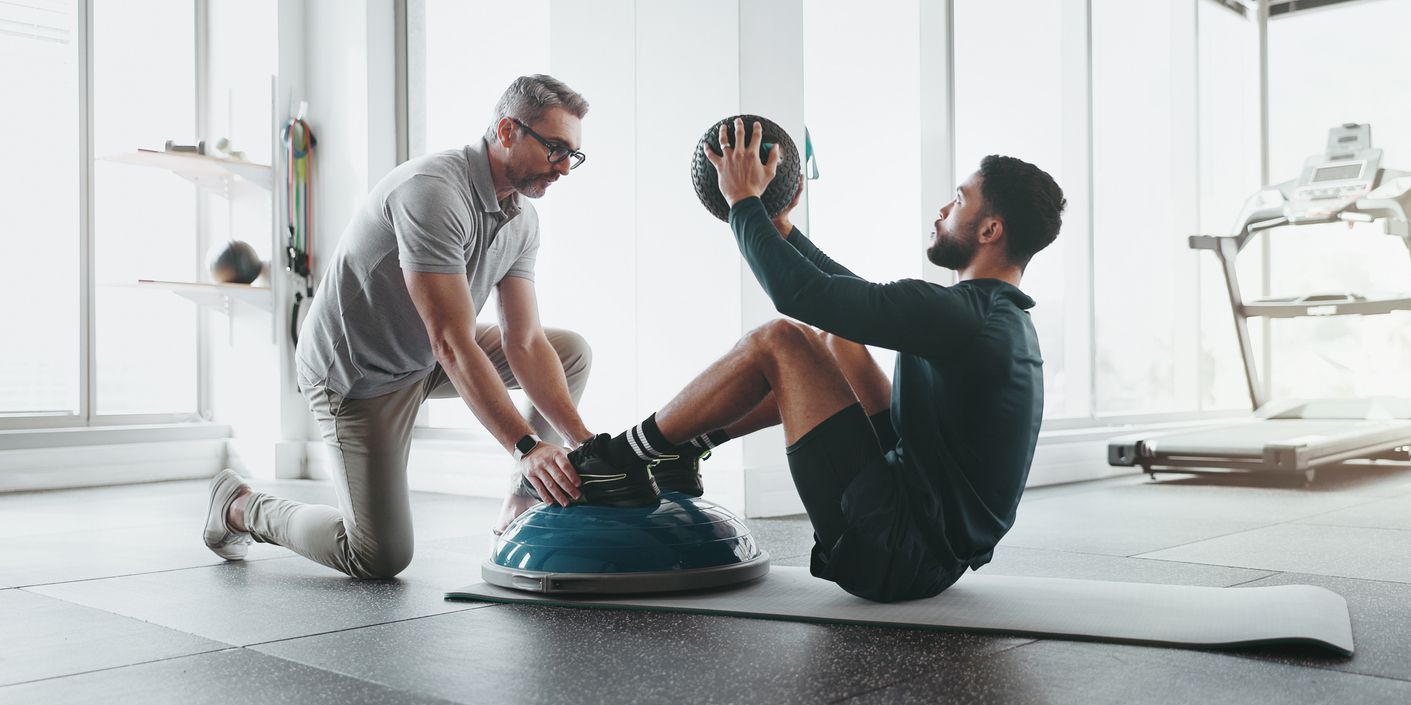What is a Sports Physiotherapist?
A sports physiotherapist helps people stay active and healthy while playing sports or exercising. Their job is to prevent and treat injuries that happen during physical activity, whether it’s for professional athletes or everyday people who enjoy staying fit. They focus on helping athletes recover after injuries, improve their performance, and keep their bodies strong and healthy so they can keep doing the activities they love.
What does a Sports Physiotherapist do?

Duties and Responsibilities
The duties and responsibilities of a sports physiotherapist focus on helping athletes stay healthy, recover from injuries, and perform at their best. While the role can vary depending on the sport or setting, here are the main responsibilities:
- Injury Assessment and Diagnosis: Carefully examine sports-related injuries to identify the problem and understand how it affects movement and performance. This involves using physical tests, observation, and medical knowledge to create an accurate picture of what’s going on.
- Rehabilitation Planning: Create personalized recovery programs that may include exercises, stretches, and treatments designed to restore strength, flexibility, and confidence. The goal is to guide athletes back to their sport safely and at the right pace.
- Injury Prevention: Design training plans and routines that reduce the risk of future injuries. This might include teaching proper warm-up and cool-down techniques, correcting posture, and strengthening vulnerable areas.
- Performance Enhancement: Work with athletes to boost their physical abilities—such as balance, agility, and endurance—so they can perform better while staying safe and reducing unnecessary strain on their bodies.
- On-Field Care: Provide hands-on support during practices or games, such as taping joints, applying ice or heat, or offering first aid for sudden injuries. Being on the sidelines ensures athletes get quick and effective care when needed.
- Education and Guidance: Teach athletes how to take care of their bodies, use proper form, and manage recovery. By giving them the right knowledge, sports physiotherapists empower athletes to stay healthy in the long run.
- Collaboration: Work closely with coaches, doctors, athletic trainers, and sometimes even nutritionists. Together, the team creates the best possible plan for each athlete’s health and performance.
- Monitoring Progress: Keep track of an athlete’s recovery and performance over time. Regular check-ins and adjustments ensure treatment plans stay effective and continue to meet the athlete’s changing needs.
Different Types of Sports Physiotherapists
Sports physiotherapists often distinguish themselves based on the population they serve or the type of sports injuries on which they focus:
- Orthopedic Sports Physiotherapists focus on musculoskeletal injuries such as sprains, fractures, ligament tears, and joint problems.
- Pediatric Sports Physiotherapists work with young athletes, addressing growth-related issues and preventing injuries during development.
- Performance and Conditioning Specialists integrate biomechanics, physiology, and nutrition to optimize performance and prevent injuries through strength, flexibility, and endurance training
- Rehabilitation and Post-Surgical Specialists help athletes recover from surgeries or severe injuries, like ACL reconstruction or shoulder/rotator cuff repair.
- Elite/Professional Team Physiotherapists work directly with professional or competitive athletes, often traveling with teams and providing onsite care.
Sports physiotherapists have distinct personalities. Think you might match up? Take the free career test to find out if sports physiotherapist is one of your top career matches. Take the free test now Learn more about the career test
What is the workplace of a Sports Physiotherapist like?
Sports physiotherapists can work for a variety of organizations, depending on their specialization and experience. Common employers include:
- Professional and Amateur Sports Teams or Clubs – providing onsite assessment, immediate care, and ongoing support for athletes during training or competitions
- Sports Medicine and Physiotherapy Clinics – offering treatment and rehabilitation services to athletes and active individuals
- Hospitals and Rehabilitation Centers – focusing on post-injury recovery and orthopedic care
- Fitness Centers, Gyms, and Wellness Facilities – supporting injury prevention and performance optimization
- Universities, Colleges, and Sports Academies – working with student-athletes and conducting research
- Private Practice – running independent clinics or offering specialized sports physiotherapy services
Sports physiotherapists can work almost anywhere athletes or active people need help with injuries, recovery, or improving performance.
You’ll often find them in clinics, hospitals, gyms, sports arenas, or right on the sidelines at fields and stadiums. The job is active and hands-on, with lots of time spent standing, showing athletes how to do exercises, and using different treatment techniques and equipment. In some cases, sports physiotherapists also get to travel with teams, providing care and support wherever the game takes them.
Frequently Asked Questions
Physiotherapy and Exercise Science-Related Careers and Degrees
Sports Physiotherapists are also known as:
Sports Physical Therapist
Athletic Physiotherapist
Sports Medicine Physiotherapist